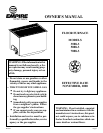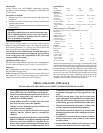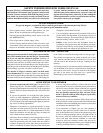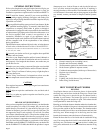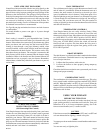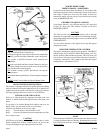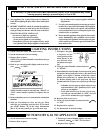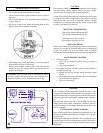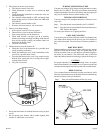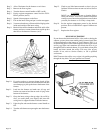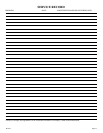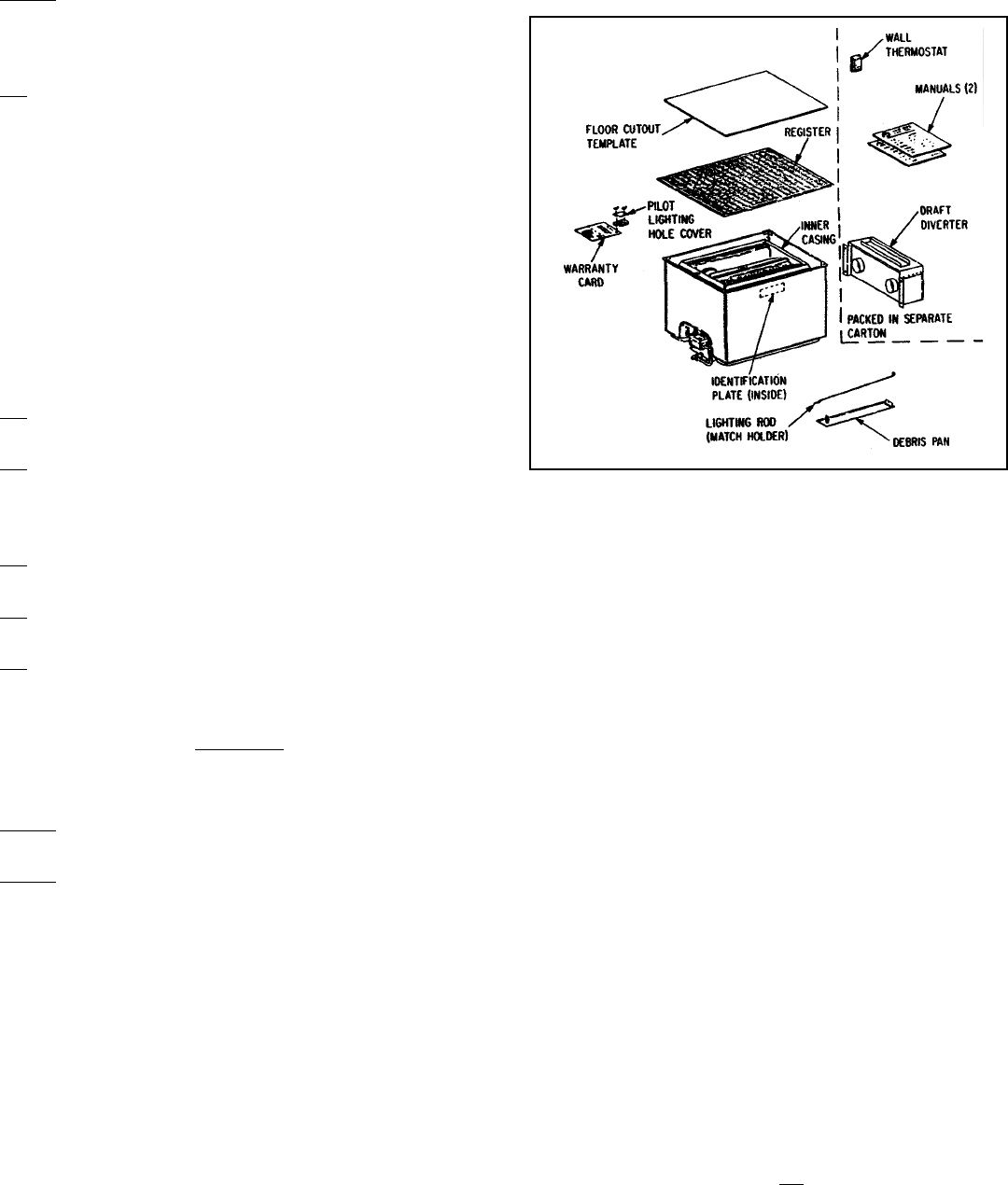
R-1842Page 4
GENERAL INSTRUCTIONS
Follow a few simple rules and your Empire furnace will give you
years of trouble-free heating. When your furnace is ready for
installation, operation or repair here are a few DO's and DON'T's.
DON'T install the furnace yourself if you are not qualified in
working with gas piping, chimneys, flue pipes, and venting. Gas
appliances and gas piping should be installed or repaired only by
a qualified serviceman.
DO get a qualified installing agency to install your furnace. By the
term "qualified installing agency" is meant any individual, firm,
corporation or company which either in person or through a
representative is engaged in and is responsible for the installation
or replacement of gas piping on the outlet side of the meter, or of
the service regulator when a meter is not provided; or the
connection, installation or repair of gas appliances, who is
experienced in such work, familiar with all precautions required;
and has complied with all the requirements of the authority
having jurisdiction.
The installation must conform with local codes, or in the absence
of local codes, with the National Fuel Gas Code ANSI Z223.1.
*Available from the American National Standards Institute, Inc., 11 West 42nd
St., New York, N.Y. 10036.
DO consult your dealer and local gas supplier about qualified
installers and servicemen.
DO refer to your Empire Installer and Serviceman's Manual so
that you can make sure that all installation and service work was
done properly. You bought the best furnace, now make sure you
get the best service.
DO make sure your venting system and flue pipe were installed
as outlined in your Empire Installer and Serviceman's Manual.
DO see "Using Your Furnace" before you try to light the pilot or
turn your furnace on.
DO see "Using Your Furnace" for instructions on how to set the
register temperature control when children are present.
CAUTION
Floor register becomes hot when operating and can cause burns.
Keep children off!
DON'T adjust or repair the combination valve, and don't take it
apart.
DON'T try to make any repairs except the ones listed for you to
do in Service Checks.
DID YOU GET EVERYTHING?
After you have unpacked your Empire furnace, you should make
certain everything is in order. For example, did you receive the
model furnace you ordered? Is it the model for the type of gas
(Natural or Propane) you want? Did you get all of the parts you
are supposed to have? Look at picture A. It will tell you where
your furnace identification plate is. The plate has stamped on it
the model and serial number of the furnace you received. It also
tells if your furnace is supposed to use natural (NAT) or propane
(LP) gas. See if the serial number on your furnace is the same as
the number on the WARRANTY CARD. Be sure your dealer fills
out the WARRANTY CARD, then MAIL the purchaser's report
(bottom part) to us. Look at Picture A and also the list below to
see if you have received everything on the list. If anything is
missing or broken, or if the model or serial numbers are not right,
or if the furnace is for natural and you have propane (or the other
way around), contact your dealer or Empire Comfort Systems,
Inc.
A
1. Owner's manual (you are reading it now)
2. Installer and Serviceman's Manual
3. Wall thermostat (packed in draft diverter carton)
4. Draft diverter (packed in separate carton)
5. Cardboard cutout template (inside top of furnace box)
6. Register (top of furnace)
7. Warranty card
8. Debris pan
9. Lighting rod (inside furnace lying on bottom)
10. Inner casing (inside furnace)
HOW YOUR FURNACE WORKS
HEATING
Your Empire furnace uses air from two places; air from outside
the living area, and air from inside the living area. The air from
outside the living area is mixed with gas and burned inside a
chamber in your furnace. The burned gas and air is exhausted
through a flue pipe to the outside air again. This exhaust should
not be permitted to enter the living area.
Burning gas inside the furnace chamber makes the chamber hot.
Cool air from inside the living area is drawn into the furnace and
flows past the outside of the hot chamber. The chamber makes
this air hot and this hot air flows out of the furnace and back into
the living area. When enough air in the living area has been
heated, the thermostat turns the furnace off automatically.
Picture B shows the flow of air inside and air outside the living
area. You can see that the air inside is not mixed with air outside
the living area. The furnace does not burn air that is within your
living area, and burned air or exhaust should not enter the living
area.



